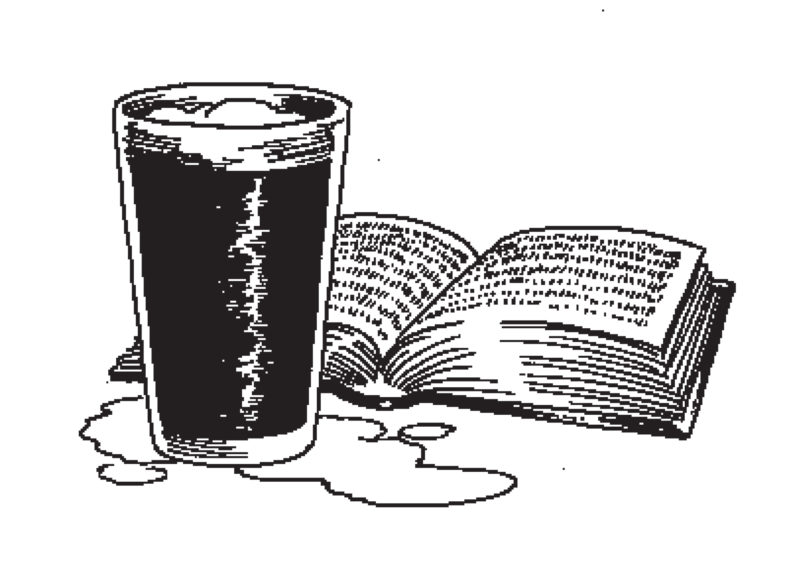MOLLY MALONE’S
In the hierarchy of Hibernian drinking establishments in Los Angeles, Molly Malone’s is firmly entrenched near the bottom. Located midway between downtown Los Angeles and Santa Monica, and twenty unwalkable blocks south of Hollywood’s Sunset Strip, the pub hovers on the fringes of respectability. The La Brea Tar Pits, Los Angeles County Museum of Art, and the Petersen Automotive Museum—permanent home of the Batmobile—are all nearby, but not near enough for the bar to benefit from the tourist traffic. Sandwiched between a camera-repair shop and a vacant storefront, Molly’s is a neighborhood joint.
Sure, the TV-news crews surface on St. Patrick’s Day, and Richard Harris filmed a scene for the adaptation of Tom Clancy’s novel Patriot Games here, but Molly’s principal attraction is its gloom. Not just any gloom, but the lugubrious dank endemic to woody nooks patinaed with old smoke and fresh regrets. Molly’s is lively enough at night, but by day it transforms into the kind of place where things are not meant to be seen clearly and whiskey always seems like a fine idea. The owner tried to brighten the place up a bit with pictures of the bar’s namesake—a comely nineteenth-century cockle seller whose statue on Grafton Street is affectionately referred to as “the tart with the cart”—but the effort is wasted. Molly’s is an oasis of darkness in a city cursed with light.
It’s easy to believe that nothing ever changes here. Indeed, Molly’s may very well be allergic to it. The same dusty array of oil paintings has darkened the walls for as long as anyone can remember: JFK, Bobby Sands, Brendan Behan. My favorite portrait features an old silver-haired gent with thick eyeglasses. Sometimes, when my vision is sufficiently adumbrated by excesses of stout, the portrait morphs into the death mask of James Aloysius Joyce—a portrait of the artist as a dead man. The actual mask is permanently on display at the museum housed inside the Martello Tower in Sandy Cove, Dublin County, where Joyce briefly lived and later chose as the setting for the opening scene of the book that would forever change the way we think about novels.
Perhaps this association is what led me to suggest Molly’s as the location for the first meeting of the Ulysses reading group. Molly’s seemed like a logical choice, as our group was a decidedly nonacademic lot: a library clerk, a coffee jerk, a juvenile-corrections officer, two carpenters, and a copywriter. However, because this was L.A., we preferred to be described as an actor, a zinester, a musician, a poet, a rock star, and (you knew this was coming) an amateur screenwriter. In short, we were a bunch...
You have reached your article limit
Sign up for a digital subscription and continue reading all new issues, plus our entire archives, for just $1.50/month.
Already a subscriber? Sign in





